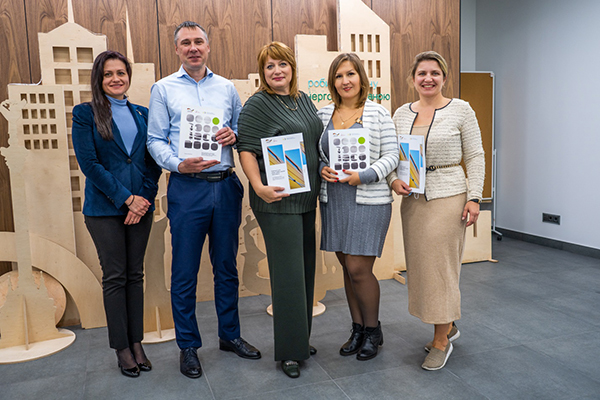A Conference "Energy Efficient Procurement – Sustainable Buildings" was held in Kyiv

On October 22, 2021, as part of the celebration of the Week of Germany 2021: "Side by side - 30 years of German-Ukrainian relations", a conference "Energy Efficient Procurement – Sustainable Buildings" was held.
This conference presented the achievements of the project "Promotion of Energy Efficiency and the Implementation of the EU Directive on Energy Efficiency in Ukraine" implemented in Ukraine by GIZ GmbH on behalf of the Governments of Germany and Switzerland to develop and promote national instruments in the field of energy efficient public procurement.
The event was held in a mixed offline / online format which brought together 375 participants: construction / reconstruction customers, designers, builders, building materials manufacturers and experts in the field of energy efficient, green and sustainable construction.
At the beginning of the event the participants were addressed with welcoming words by:
Serhiy Nagornyak, People's Deputy of Ukraine - Chairman of the Subcommittee on Energy Conservation and Energy Efficiency of the Verkhovna Rada Committee on Energy and Housing and Communal Services,
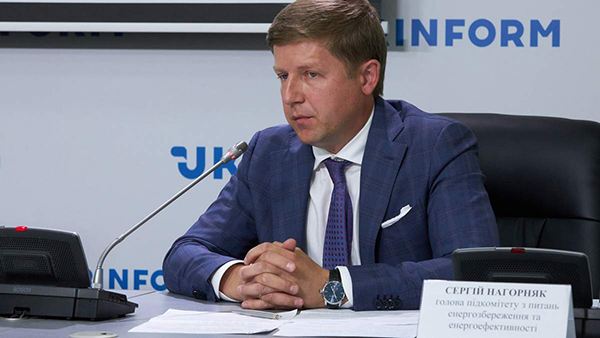
Vasyl Lozynsky, First Deputy Minister of Communities and Territories Development of Ukraine,
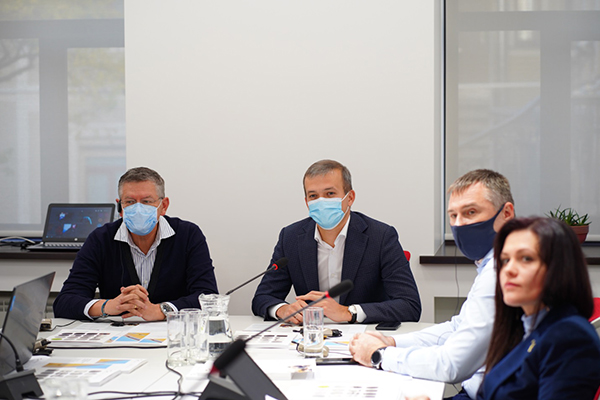
George Cristodorescu, Director of the Energy Efficiency Sector of GIZ Ukraine,
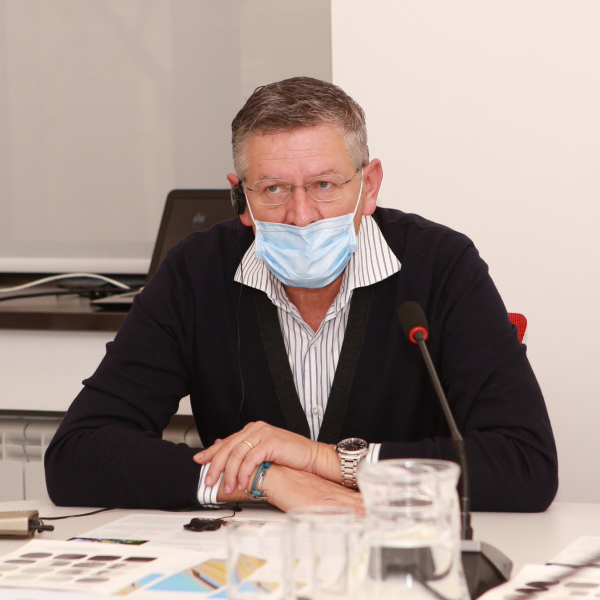
Chloe Allio, Head of the Third Division of Assistance Programs "Economic Cooperation, Energy, Infrastructure and the Environment", EU Delegation to Ukraine,
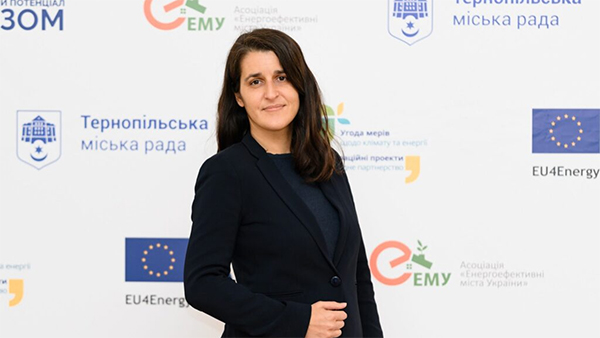
Dmytro Petrunin, Director General of the Energy Efficiency Directorate at the Ministry of Development of Communities and Territories of Ukraine,
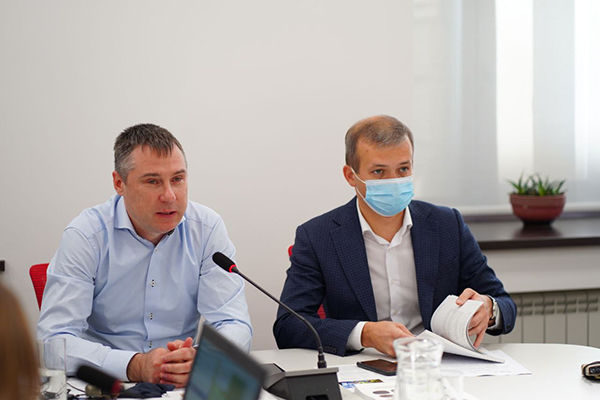
Petro Kulikov, Doctor of Economics, Professor, Vice-President of the Confederation of Builders in Ukraine, Rector of Kyiv State University of Construction and Architecture, winner of the State Prize in Science and Technology.
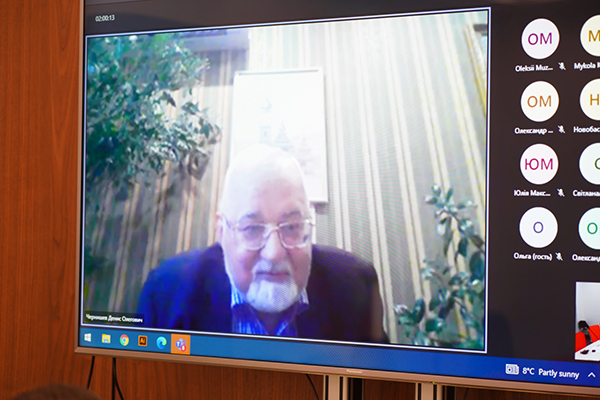
Victoria Shkolna, moderator of the first part of the Conference, advisor of the GIZ project "Promotion of energy efficiency and the implementation of the EU Directive on energy efficiency in Ukraine".
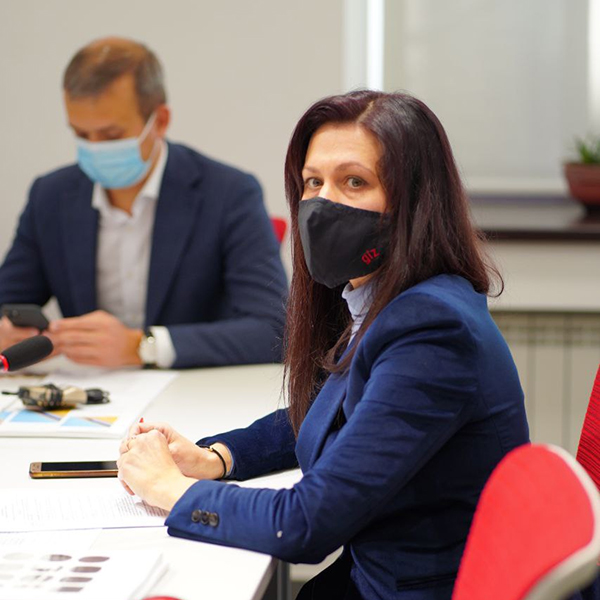
The expert reports focused on Germany's experience in implementing energy-efficient construction tools available for the use in the public sector.
Ecodesign and ecolabelling in the public procurement system
Lars Johansen, Consultant of Division G II 2 - Sustainable Consumption, Product-Related Environmental Protection, Federal Ministry of the Environment, Nature Conservation and Nuclear Safety presented:
- Germany's national policy in the field of energy efficient, green and sustainable public procurement.
- The role of eco-design, ecolabelling Blue Angel and other types of ecolabelling in achieving better energy efficiency results, the implementation of sustainable construction projects for the needs of the state and communities.
- How can we strengthen cooperation and knowledge sharing for global coordination of environmental certification?
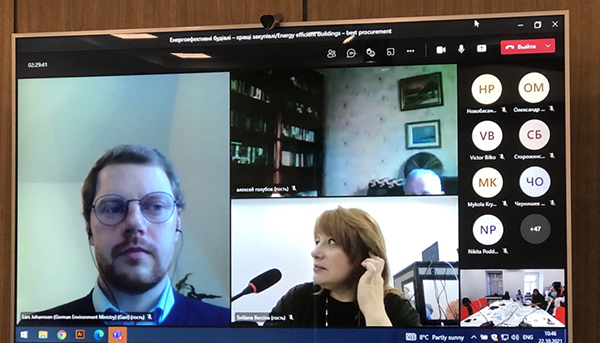
DGNB standards and certification system to achieve better energy efficiency in construction
Levan Ekhvaia, DGNB GmbH's international certification expert, spoke about the following:
- Why sustainable construction is better due to energy efficiency and other characteristics of the facility.
- Principles and methods of building assessment in the DGNB system.
- DGNB requirements for building materials and structures.
- Best practice of applying DGNB for the implementation of energy efficient and sustainable construction projects for the needs of the state and communities.
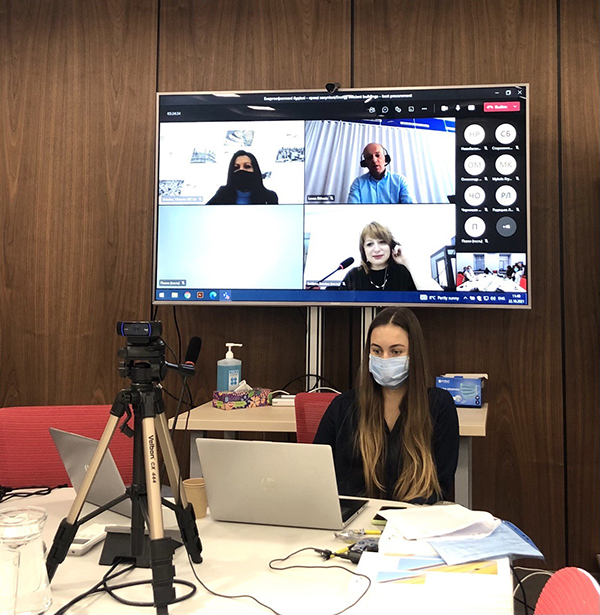
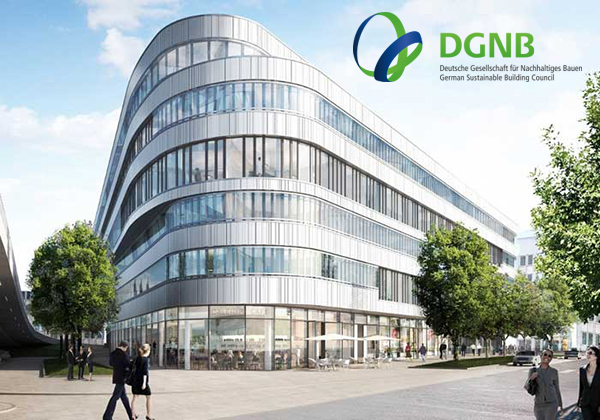
The DGNB certification system was developed by the German Council for Sustainable Construction (Deutsche Gesellschaft für Nachhaltiges Bauen, DGNB) for the use as a tool in the design and quality assessment of buildings in a comprehensive perspective. As a clear and understandable rating system, the DGNB system covers all important issues of sustainable construction and marks outstanding buildings by categories: bronze, silver and gold. There are six aspects that affect the assessment: energy efficiency, environment, economics, socio-cultural and functional aspects, methods and processes, location.
The DGNB certification scheme is based on the concept of integrated planning, which defines the goals of sustainable construction at an early stage. Thus, sustainable buildings can be designed and constructed or reconstructed based on the current technology, and their quality can be confirmed by a new certificate.
The first DGNB certificates were issued for a building in Germany in 2009. In January 2010, more than 200 buildings were certified. In June 2010, the GSBC International System (DGNB) was officially launched, which is used for certification on almost all continents.
The basis for the system was the first standard "New construction of office buildings" adopted in 2008. Then the system standards were developed and implemented for completely different types of buildings: commercial, industrial, institutional and residential. In 2010, DGNB presented the standards for hotels, existing buildings and interiors.
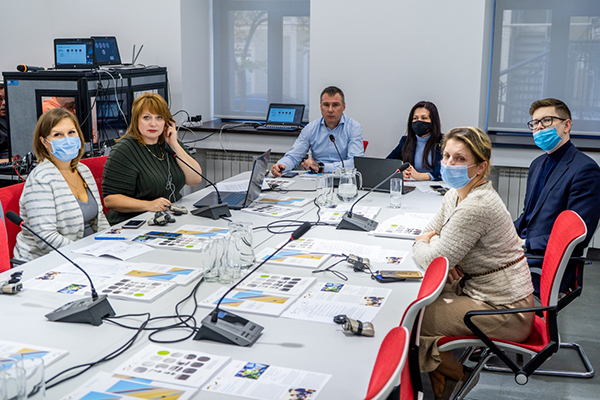
Despite the voluntary nature of the presented standards of Blue Angel and DGNB, they are quite popular in the public procurement system, and allow customers to purchase the best energy efficiency in combination with additional sustainability criteria.
Svitlana Berzina, moderator of the second part of the Conference, President of the NGO Living Planet, consultant of the GIZ project "Promotion of Energy Efficiency and the Implementation of the EU Directive on Energy Efficiency in Ukraine" spoke about the requirements for energy efficiency in public procurement in Ukraine.

Criteria for energy efficient procurement
- Prerequisites for strengthening the potential for energy efficient procurement in Ukraine
- National legislation in the field of energy efficiency and public procurement
- Presentation of the guidelines for customers on application of energy efficiency requirements to a subject of procurement.
She also presented the guidelines developed in the framework of the project "Promotion of energy efficiency and the implementation of the EU Directive on energy efficiency in Ukraine", implemented by GIZ on behalf of the Federal Ministry for Economic Cooperation and Development (BMZ).
Halyna Buzan, Executive Secretary of the National Technical Committee for Standardization TC 82 "Environmental Protection", reported on the Revision of the ecological criteria of the ecolabelling program "Green Crane" for wall materials and structures. It should be noted that the presented standards of the Ukrainian type I ecolabelling program are harmonized with the requirements of Blue Angel and other ecolabelling programs that have international recognition and are recommended for energy efficient, green and sustainable construction projects worldwide.
Lifecycle Criteria and Certification for Building-Related Products
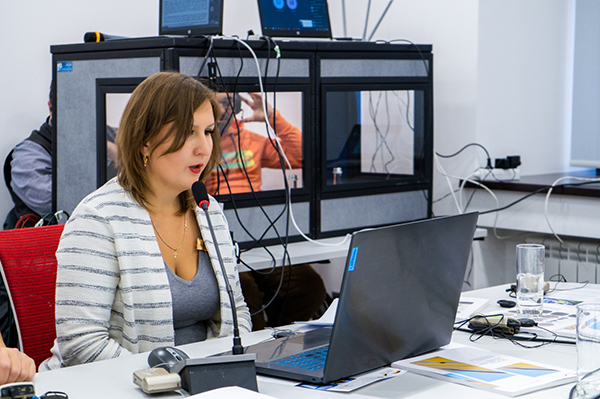
She also talked about:
- Basic principles and methods of energy and ecolabelling in Ukraine.
- An overview of the updated standards of the ecolabelling program Green Crane for wall materials and structures with better energy efficiency.
- Examples of application of technical regulations on eco-design and standards.
Svitlana Permynova, GIZ project consultant and director of the Center for Environmental Certification and Labeling of the NGO Living Planet, presented the publication of the Guidelines 'How to build energy efficient and green schools in Ukraine?' developed within the project activity.
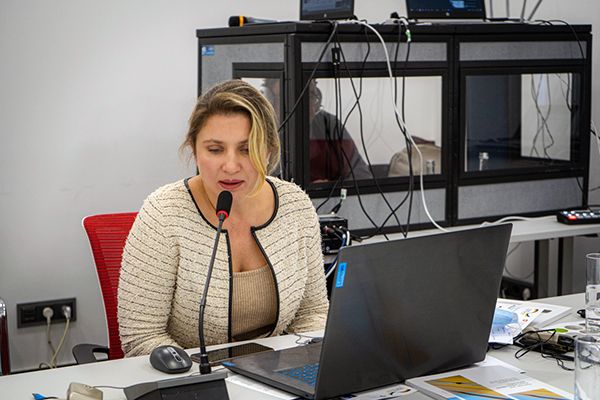
She gave examples of application of the Guidelines, the implemented projects and certification of green schools.
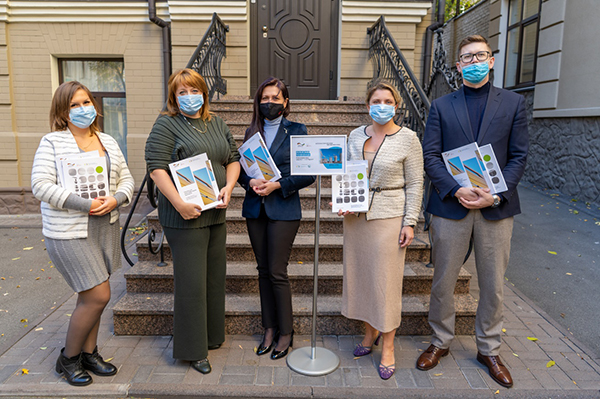
Natalia Dyuzhylova, Ph.D., consultant to the Council of Green Building in Ukraine, gave an example of the application of the ecolabelling standard for concrete products on the example of the certified according to ISO 14024 aerated concrete TM Aeroc.
Energy efficiency - from production to product: the experience of Aerok
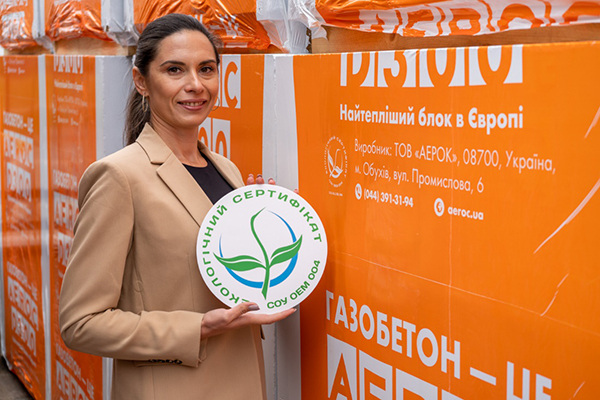
The company's experience includes:
- Introduction of energy efficient, low-waste and cleaner production technologies;
- Development of innovative products for energy efficient and sustainable construction;
- Experience of passing environmental certification of products and application of ecolabelling.
